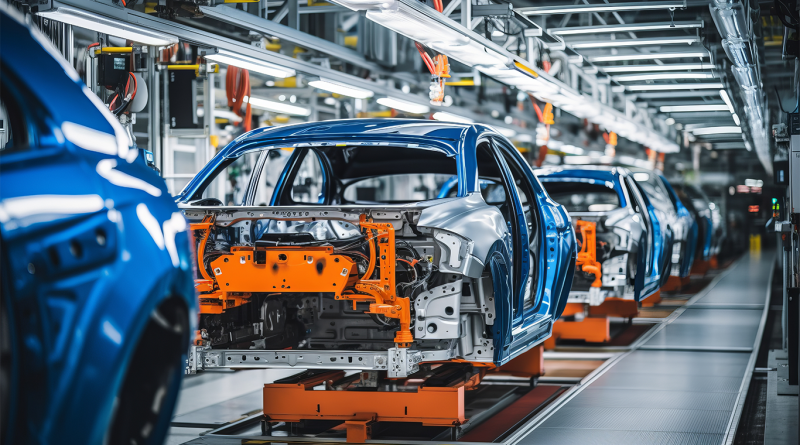US Auto Tariffs Fuel a New Wave of Reshoring Plans
Subscribe to our free newsletter today to keep up-to-date with the latest manufacturing news.
Donald Trump’s latest remarks on auto tariffs have jolted the global automotive industry into a familiar state of anxiety. In a speech delivered hours ago, Trump pledged to levy a blanket 10 percent tariff on all imports and floated the idea of even steeper rates for vehicles, reviving tactics from his first term.
Automakers and suppliers move fast to minimize risk exposure
If Trump’s tariff threats were intended to push companies toward reshoring, they are already having an effect. Several global automakers are shifting gears, proactively investing in US operations and reducing reliance on foreign imports.
Rolls-Royce recently announced a significant boost to its US manufacturing capabilities, citing rising concerns over potential tariffs. While the UK-based firm has traditionally maintained a European-centric supply base, executives say the US is becoming too strategically important to risk being sidelined by trade barriers.
Hyundai has gone even further. In a move widely seen as a preemptive hedge, the South Korean automaker committed $5 billion to a new facility in Louisiana. The decision was influenced not only by market growth but by a need to protect its North American strategy. The company’s investment is expected to create thousands of jobs and secure local sourcing routes, insulating operations from future policy shifts.
Bosch, a major German parts supplier, is also staying the course in North America despite looming tariff threats. The company’s leadership remains confident in the region’s long-term viability, highlighting efforts to localize production and shift critical supplier relationships closer to end markets.
Why foreign manufacturers are doubling down on US production
For global automakers, the United States is becoming an operational priority. The threat of tariffs is accelerating a broader shift already underway, one focused on minimizing exposure to geopolitical risk, reducing logistical complexity, and aligning more closely with policy incentives.
Several high-profile manufacturers are actively investing in US-based production, not just to meet domestic demand but to insulate themselves from the policy swings of a volatile trade environment. If sweeping auto tariffs are implemented in 2025, the effects will ripple beyond foreign carmakers.
Past trade disputes offer some clues. When the Trump administration introduced steel and aluminum tariffs in 2018, costs rose across the board. Automakers passed many of these increases on to buyers, inflating vehicle prices at a time when affordability was already strained. A new round of targeted auto tariffs could have a similar effect, especially if applied without exemptions. Analysts expect the price of imported vehicles, particularly those built in Mexico or the EU, to rise.
Preemptive reshoring is now a core strategy for global manufacturers looking to secure their U.S. presence in the long-term. Programs like the Inflation Reduction Act and CHIPS Act encourage companies to build, hire, and innovate onshore where some automakers have responded with major capital commitments.
